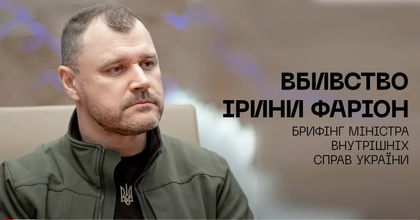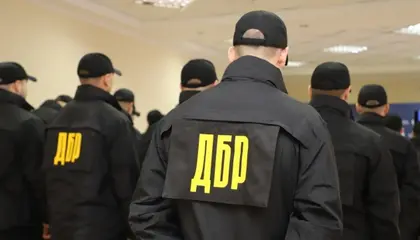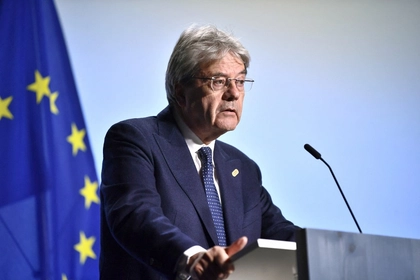Recently, much has been written in the international press about the corruption scandals in Ukraine involving the military procurement system, as well as good old-fashioned bribery and kickback cases with leftover Soviet style oligarchs and some shady business deals.
Since Ukraine is a candidate for membership in both NATO and the European Union, addressing the decades of deeply rooted systemic corruption is perhaps for the Zelensky administration, second in importance only to waging the war against the Russian invader. Without demonstrable evidence of success in stemming the tide of public corruption, the chances of Ukraine achieving membership in either organization becomes much more difficult, and President Volodymyr Zelensky knows that very well.
Because he is very attuned to that issue, his administration, through his anti-corruption agencies – the State Bureau of Investigation (DBR), the National Anti-Corruption Bureau of Ukraine (NABU), and the Specialized Anti-Corruption Prosecutor's Office (SAPO) – has launched an aggressive attack on public corruption at the highest levels of both the Ukrainian government and private sectors.
A litany of graft scandals
Perhaps the case with the highest profile and greatest embarrassment for Kyiv’s anti-corruption efforts was that of the chief justice of the Ukrainian Supreme Court, Vsevolod Kniaziev. Kniaziev was arrested in May for allegedly receiving a $2.7 million dollar bribe to render a favorable verdict for a company owned by mining tycoon and suspected embezzler, Kostyantyn Zhevago. Kniaziev is also alleged to be the one who initiated the bribery scheme in this case and was to pay other judges a cut of the bribe to support the “proper” verdict in the case.

Farion’s Killer Prepared Disguises, Had Another Victim in His Sights, Interior Minister Says
In February, the head of the Kyiv Tax Authority (a woman as yet unnamed) was arrested and accused of massive fraud by hiding her substantial wealth from her own tax agency. Four homes, large amounts of cash in several denominations, gold, jewelry, cars and other high price items were seized by Ukraine’s DBR. As a result of that investigation a number of high-ranking public officials were forced to resign.
At around the same time, an investigation was launched into a tax evasion scheme by the largest oil producer in Ukraine, Ukrnafta as well as oil refiner, Ukrtatnfta. Those investigations are ongoing. The Deputy Defense Minister was forced to resign amid allegations of inflated food prices for soldiers. Ukraine’s deputy infrastructure minister was arrested for allegedly stealing about $400,000 in aid money meant to purchase, among other things, generators for those families left without heat by Russian attacks.
A more recent high-profile case involved the arrest of businessman Ihor Kolomoisky. The case involving Kolomoisky, one of the richest men in Ukraine as well a friend and key supporter of President Zelensky’s 2019 presidential campaign, is perhaps emblematic of the many difficulties involved in rooting out a system of corruption that predates the modern Ukrainian state by more than 100 years.
Kolomoisky built his fortune by becoming a mogul in the banking and media business, a well-traveled route to both riches and power in both post-Soviet Russia and Ukraine. In the freewheeling and chaotic days after the fall of the Soviet Union, those who gained control of the financial markets and the media (especially in Russia and Ukraine) became the BFF (best forever friends) of the leaders of the newly democratic nations. It was in this confusing and unstable atmosphere that many businessmen like Kolomoisky made their fortunes through the establishment of elaborate systems for funneling public funds into their growing private empires.
However, Kolomoisky was only one of the many who finally got caught up in the recent crackdowns by the Zelensky administration’s anti-corruption efforts. He will undoubtedly not be the last.
None of these cases have been very helpful in burnishing Ukraine’s image as an up-and-coming democracy trying to shed its former reputation as a cesspool of corruption.
A promising future nonetheless
And yet, the current nation of Ukraine is only 32 years old, having just celebrated its 32nd birthday on Aug. 24. On that day 32 years ago in 1991, Ukraine inherited the remains of a former Soviet Republic that had been steeped in the corruption of the Soviet system since 1922, nearly 70 years.
Barely anyone alive at that time remembered free trade, free speech or democracy. Before Ukrainian independence in 1991, strict adherence to the Soviet system, including unquestioned bribery at all levels of government and business was taken for granted, just as it is today in Russia.
After independence, oligarchs who had enriched themselves at the public trough at the expense of the average Ukrainian continued to live very well. They controlled almost all industries, and the control was enhanced by their direct ties to the local commissariats. Breaking free of such an entrenched system is not easy for any nation, but Ukraine has made tremendous strides in that direction, actions strengthened under President Zelensky, as evidenced by the recent investigations and arrests of senior government officials, some of which I have highlighted above.
SAPO, the primary Ukrainian anti-corruption agency, is a prime example of the renewed focus on accountability for corruption at all levels within the public and private sectors. Although it has had its growing pains and missteps as any new organization will, SAPO has investigated and successfully prosecuted several important high-level cases in recent years. With increased funding and support from the president’s office, its effectiveness will only grow.
Lastly, I challenge any Western nation to try and hold itself up as an example of unquestioned virtue and free of corruption, even those nations with hundreds of years of experience with democratic institutions at their disposal. In my opinion, for such a new democracy, Ukraine is proving to be an inspiration to the entire world, not just for its tenacious fight for survival against incredible odds, but for its iron-like determination to overturn decades of Soviet corruption to become the world’s newest democracy.
The views expressed in this opinion article are the author’s and not necessarily those of Kyiv Post.
You can also highlight the text and press Ctrl + Enter






